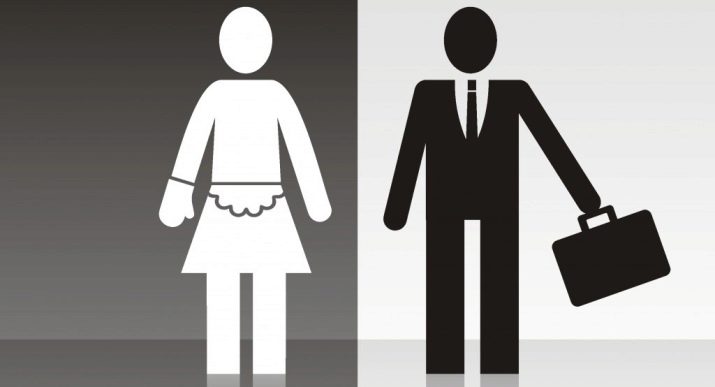Not only specialists in psychology are asking the deepest question of what rigidity is and what is the reason for it, but also ordinary people who are interested in this feature of the human psyche and its consciousness. Next, we will take a closer look at what this unusual word is all about, examine in more detail the concept of rigidity and its variations. We will also try to understand the causes of its occurrence and methods of overcoming it. Moreover, the advice of professionals in this field will be explained and their general recommendations will be given.

The concept
The concept of “rigidity” has several interpretations and definitions. It should be noted right away that this is a kind of complexity and the unwillingness of the human mind to respond to certain types of situations that force a person to leave their own comfort zone. But this is not always a pathology.

Rigidity in psychology and psychiatry means a person’s total or partial incapacity to change his intended path and program of consciousness, a complete denial or serious difficulty in changing conditions that must be changed to some extent. In simple terms, a person simply does not want and is afraid to change what requires change. Rigid people do not tend to change their habits, whatever they may be. They are very stubborn in many situations, even if they realize that they are not right in a given situation. They simply cannot afford to agree with an opponent or with one or another point of view.
Rigid people very often have stresses and mental problems, they are emotionally unstable and at the same time quite impressionable. It is quite difficult for close and simply surrounding people to conduct a dialogue with such people, for this, as a rule, you have to put a lot of effort or distract such a person with other topics. But it is not all that bad. Despite the "template reality", such people can achieve good success in life, but it depends on many factors.

Varieties of rigid behavior
Today in psychology there are several types of rigidity, which include:
- cognitive;
- affective;
- emotional
- motivational.
We consider each of the varieties for a more detailed understanding of this phenomenon.
Cognitive
Cognitive rigidity is a difficulty in restructuring perception from one question to another, from changing one topic to another and from completely changing one picture of the world to another. Very many subjects live in their exceptional reality, categorically refusing to create a new picture of the world, even if certain conditions and new information require it, which crowds out the former. People with cognitive rigidity will act in certain situations and solve some problems only according to their old and proven patterns.

Affective
Affective rigidity implies the presence of certain responses in the human mind. This variety implies the affectiveness of certain responses to changing emotional objects.
Speaking in understandable language, this variety implies a person’s unpreparedness for changes in the binding of certain events in which certain reactions are used.

Emotional
Emotional rigidity implies difficulty in restructuring the system of motives in certain life circumstances. Moreover, circumstances require adjustment, plasticity and behavior change.
Many scholars argue that emotional rigidity is a kind of “stable emotion” to everything, an unchanging reaction. It turns out that despite the regular change of circumstances or situations, the individual continues to react to them the same way, without changing his emotions. That is, no matter what happens, changes in the emotional state will not happen.
Motivational
Motivational rigidity is such a variety that involves stagnating a person in his own reality and a complete unwillingness to change uniformity. That is, a person categorically refuses to burden himself with such tasks to adapt to the new world and information. This also includes the fact that the individual does not want to change the usual ways of satisfying his needs, completely "trusting" the old.

Why arises?
Since in psychology the term rigidity refers to the section of mental disorders, one should know where it comes from.
This mental disorder implies a decrease in certain processes of mobility and the adaptation of the human mind to life difficulties and the problems that arise in it. That is, the lack of such adaptation to life entails the absence of flexible thinking, which means that it becomes very difficult for an individual to navigate in a world that is changing every second.

The occurrence of rigidity, as a rule, is associated with many factors that are most often not single and are distinguished by specialists in the complex. So, this disorder may be due to somatic factors:
- the structure of the central nervous system and its mobility;
- certain pathologies associated with diseases of the central nervous system;
- genetic predisposition and any endocrine disorders;
- changes in the course of growing up and aging;
- serious nutritional and dietary deficiencies;
- severe poisoning of the body, including chemicals and substances;
- serious head injuries;
- Also, the disorder can be caused by the regular use of alcoholic beverages and various kinds of drugs.

The following factors are considered psychological factors of conditioning of rigidity:
- features in human temperament;
- Various types of education, starting from childhood;
- the presence of psychological trauma and serious shocks that affect the individual;
- the presence of concomitant disorders - nervousness and hysteria, as well as some others that cause anxiety, apathy, emotionlessness and a neutral attitude to life;
- personal conflicts, split personality;
- psychoses of various etiologies, including paranoia, manic psychosis, schizophrenia and other related conditions.

Many psychologists and psychotherapists who worked on the type of higher activity and the totality of the innate properties of the nervous system also worked on the emergence of rigidity mechanisms. The American psychiatrist R. Cloninger in his works identifies 4 types of mechanisms.
- The formation of a certain dependence on certain things through encouragement or punishment. In this case, the behavior of the individual could not be approved by the parents from childhood or completely suppressed by harsh punishments.
- Lack of search skills, life according to the pattern. Unwillingness to learn something new as a result of the absence of any stimulating factors.
- The formation of personal behavior, which implies the avoidance of certain life circumstances.
- The lack of personal experience in solving certain life problems and any emerging problems in different ways. As a rule, individuals apply stereotyped behavior and stamps already mastered by them that do not require novelty.

Signs of manifestation
The psychological signs of rigidity of thinking include many points. Since a person cannot form or adjust his behavior under certain circumstances, the following points may be signs:
- excessive sensitivity and emotionality with the interlocutors;
- upholding one’s case under any circumstances;
- excessive fidelity to template habits;
- sometimes strong suggestibility;
- inability to analyze and correct certain actions.
People with rigidity can be complex, they are often tied to experienced stereotypes. Despite many factors, there are pluses.
It is difficult to circle people with such a character around their fingers, because they trust only trusted people, moreover, they are neat and pedantic in many moments.

As for the character, it should be noted here that people of this type are quite purposeful, which is typical for many leaders. They always have a clean house, such people are characterized by self-confidence, they always rely only on themselves. By nature, rigid people most often do not show their emotions, hiding them from other people. But this does not mean that they have no emotions at all, they just hide them.
Also, as an example, we can say that many people with rigidity of thinking are more resistant to everyday stresses due to their adapted reactions and template emotions.

Relationship with other psychotypes
As a rule, people with rigidity are natural rivals. They are very fond of disputes and debates, but this does not mean that it is impossible to communicate with them, just like everywhere, you need to find your own approach.

If a person’s personal qualities with rigidity are supported by a certain knowledge base, then he can become a good boss or leader who will lead the whole team.
Relationships with other psycho-types can be different, because it depends on many factors. But in general, many people may not notice that there is a rigid person next to them, because his communication will not differ from others.
Such people perfectly realize themselves in many areas of activity, finding a common language with employees and colleagues. They can be both introverts and extroverts. Common sense, and sometimes cold calculation, is indispensable to them, so indispensable in some professions.

Overcoming and Psychotherapy
Despite the fact that, as such, rigidity may not have negative consequences, it sometimes happens that people with excessive severity of rigidity are considered mentally unhealthy, which requires appropriate treatment by specialists.
Rigidity manifests itself in both children and adults. Just by reading a book, it’s unlikely that you can change the character of the child or re-educate the lost. In most cases, it is necessary to consult a professional who can choose the appropriate complex from training, behavior correction, and sometimes special preparations.
The latter, as a rule, do not bring serious benefits, in contrast, for example, from regular therapy.

However, some aspects of the manifestation of rigidity are not always required to be seriously adjusted; this issue is also best discussed directly with a psychologist or psychiatrist who can give answers to many questions.
As a rule, overcoming rigidity is a very complex process that takes a lot of time. Especially if pathology is identified. The aim of the doctor here is a kind of imposition of correct and competent thoughts on the patient. But at the same time, the patient should think that these rational thoughts come precisely from himself, that is, they are not imposed on him during the treatment process. At the same time, therapy will be successful if the patient realizes that he really needs it and will make every effort to correct his thinking, reaction and further behavior.

Psychologists advice
The rigidity of certain psychological processes may not be a pathology, since it manifests itself in almost every person under the influence of certain life circumstances. It can also be produced over time. In many cases, nothing needs to be done.
Contact a specialist only if the individual has pronounced signs of rigidityMoreover, if they negatively affect a person and his life. Depending on the specifics, the patient can easily be selected therapy, but only personal efforts will help to achieve success.
For many people, experts recommend attending psychoanalysis sessions, thereby revealing to the doctor their negative thoughts and feelings. In order to independently improve your condition and reveal the positive aspects, you can engage in art therapy, yoga and meditation. Various kinds of trainings aimed at identifying the best qualities can help to realize your role in society and purpose.

Summing up, it should be noted once again that the rigidity of character and thinking may not be a pathology at all, it all depends on a particular set of qualities of a person, his attitude to certain situations and emotions.
The reid character type is described in more detail in the next video.










